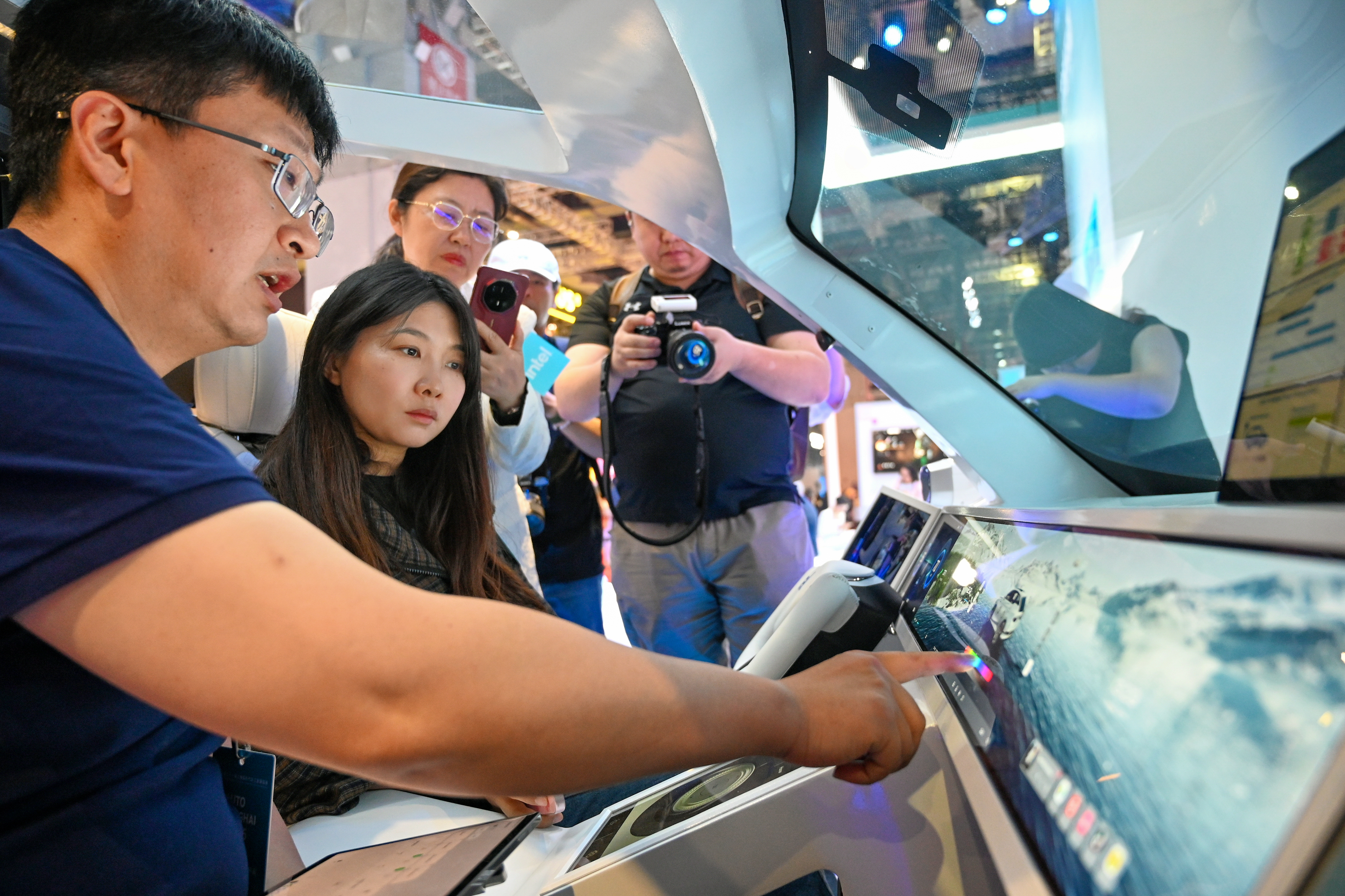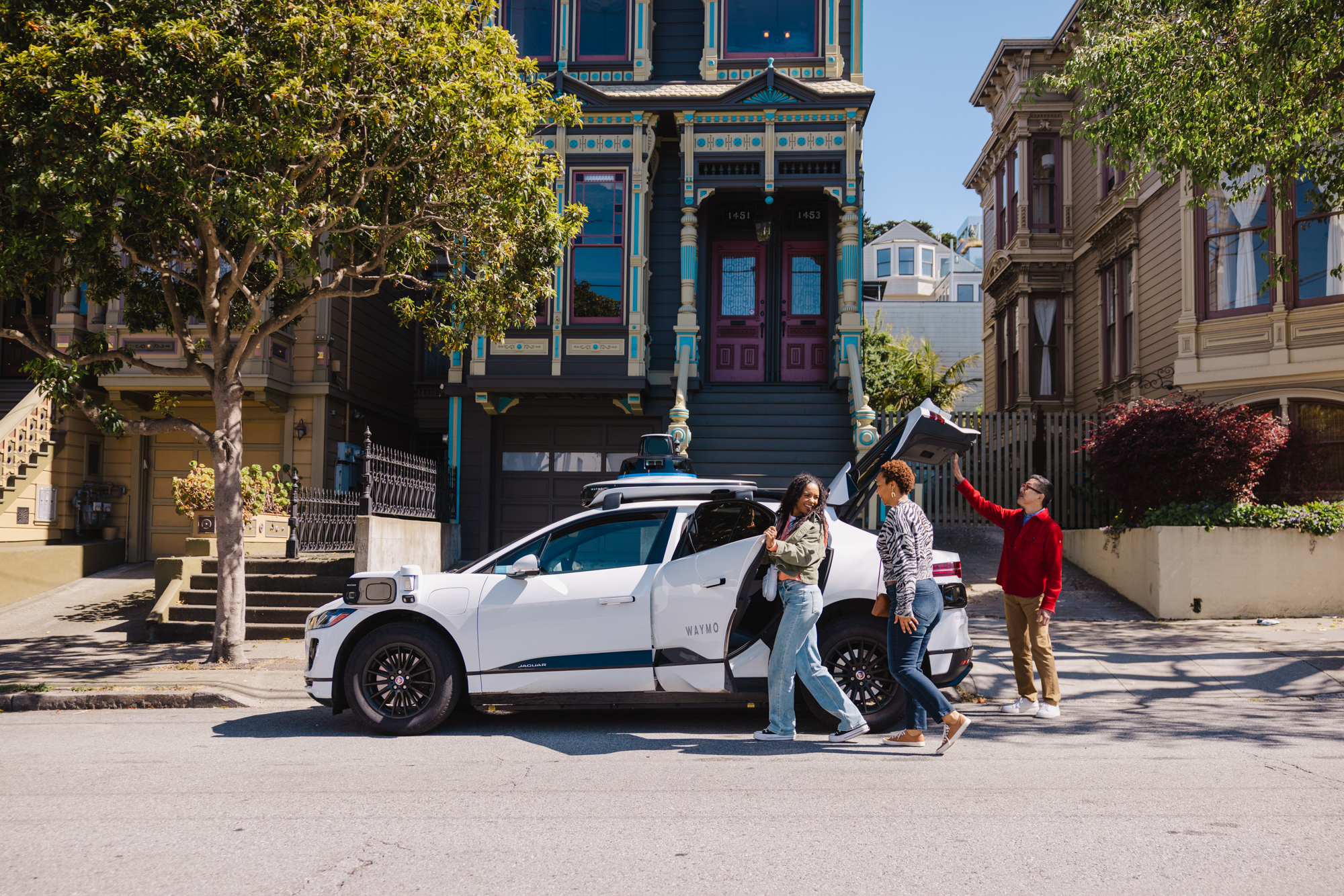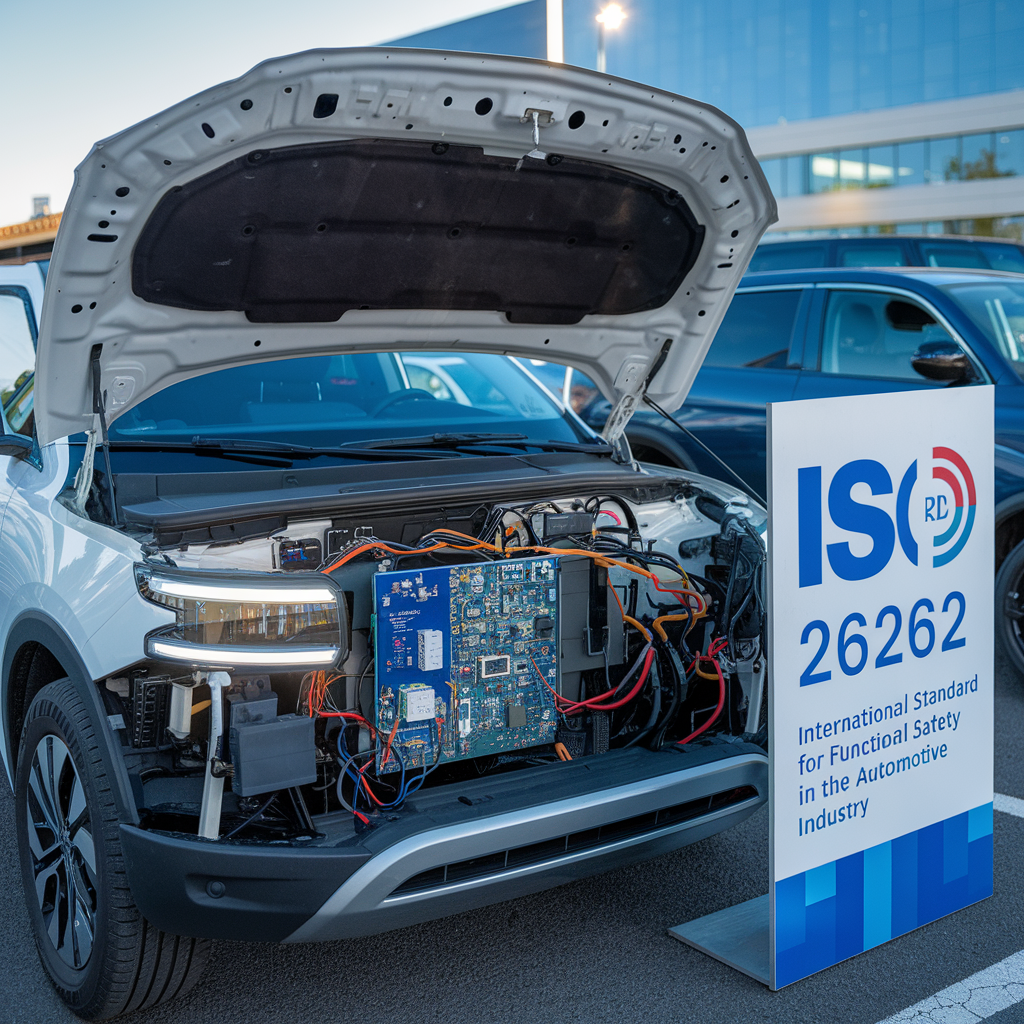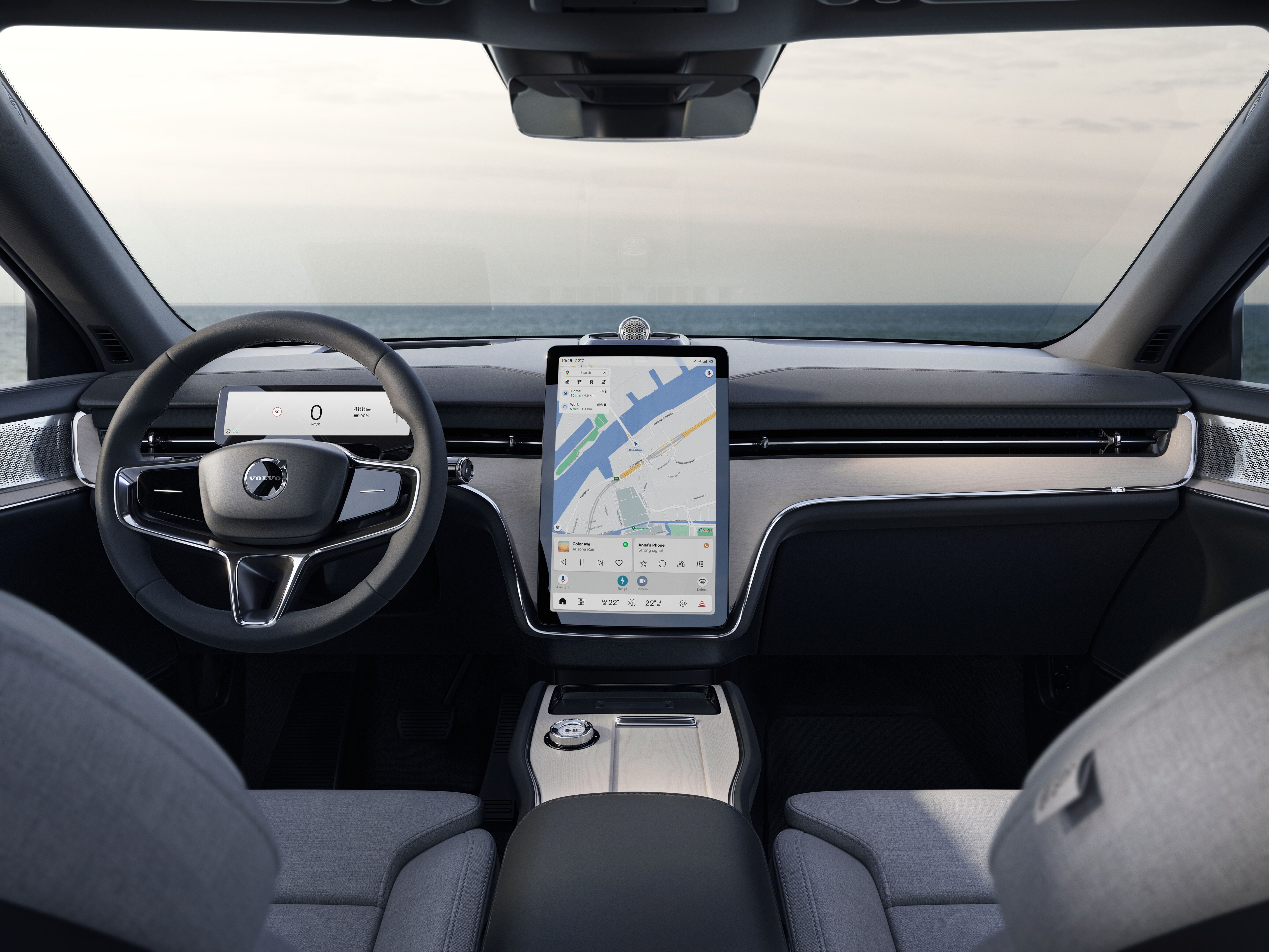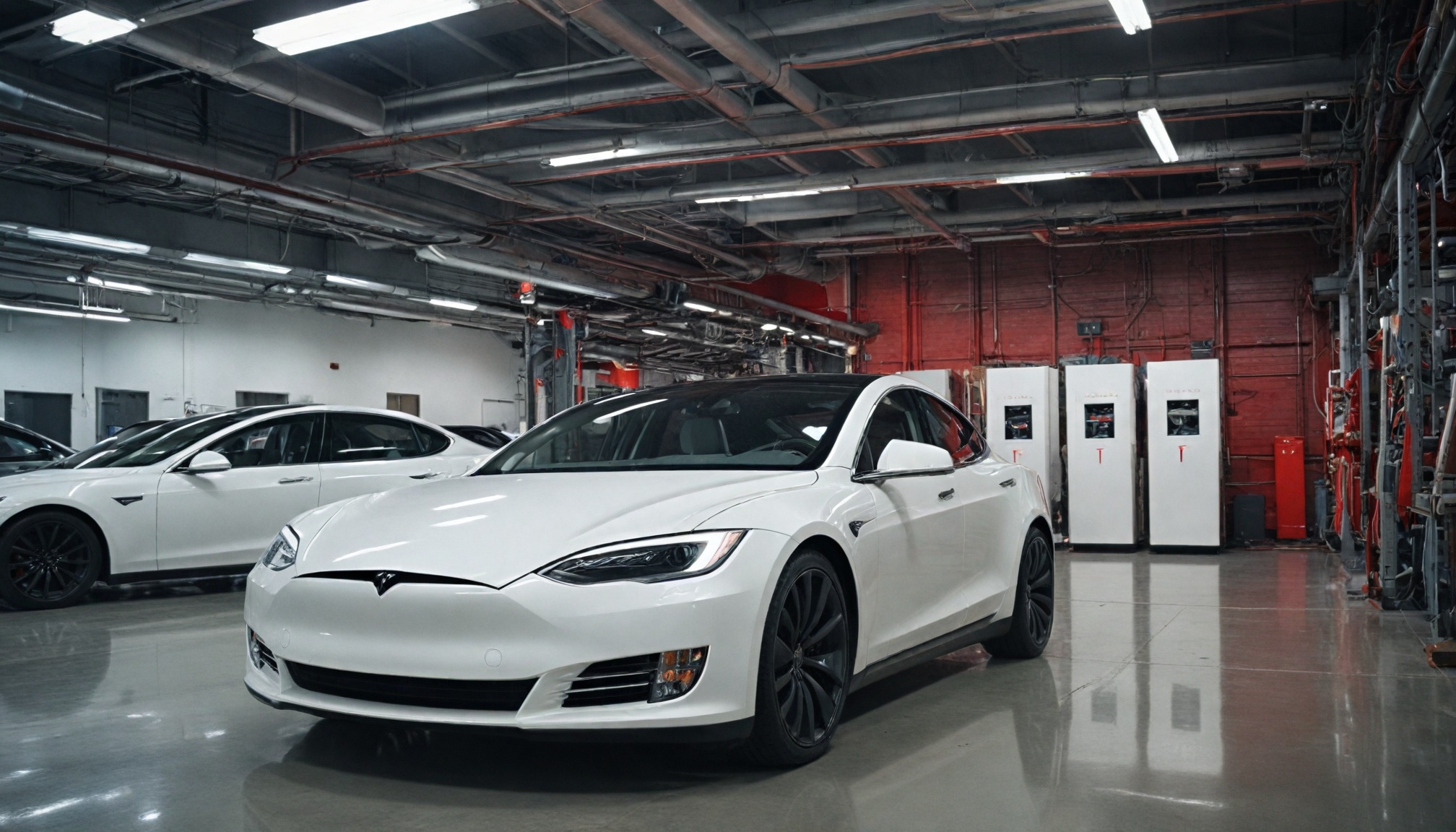
Gen Z reimagines car buying with AI recommendations and blended digital-physical experiences, taking 147 days to decide on tech-focused vehicles that integrate with their digital lives.

Drivetech Partners
As the first true digital-native generation enters the automotive market, Gen Z is fundamentally reimagining the car buying journey with expectations for blended online-offline experiences driven by AI, personalization, and seamless technology integration. Taking nearly 147 days to make purchase decisions—two months longer than Baby Boomers—this generation seeks technologically advanced, connected vehicles through a shopping process that merges digital research with physical dealership experiences.
Key Takeaways
Only 24% of Gen Z knows exactly what vehicle they want before researching (vs. 38% of Boomers), with 79% wanting AI-powered recommendations to guide their car shopping journey
Gen Z embraces a "click-and-mortar" approach, starting online but valuing authentic in-person experiences at dealerships before finalizing purchases
63% of Gen Z rates interior technology features as more important than exterior appearance, spending five times more on first cars than young adults did in the mid-1990s
Dealerships are evolving with interactive digital experiences and transparent pricing to reduce negotiation friction—a particular pain point for Gen Z
Auto manufacturers are investing heavily in seamless digital-physical integration, shifting from transaction-focused to relationship-centered retail models
The Digital-Native Generation Redefining Car Buying
Gen Z (born 1997-2012) represents the first generation to grow up fully immersed in digital technology from birth. This fundamental difference shapes how they approach major purchases, including vehicles. While 54% of Gen Z still values car ownership, their approach to buying differs dramatically from previous generations.
The research phase for Gen Z has expanded significantly, with an average of 147 days spent making purchase decisions—nearly two months longer than Baby Boomers take. This extended timeline reflects a more exploratory, thorough process. Only 24% of Gen Zers begin with a specific vehicle in mind, compared to 38% of Boomers, highlighting their openness to discovery and recommendations.
What's particularly telling is that 79% of Gen Z expresses eagerness for AI to recommend vehicles tailored to their preferences. This signals a fundamental shift in how car buying decisions are made—from traditional brand loyalty and dealership relationships to data-driven, personalized guidance.
Blending Digital Research with Physical Experiences
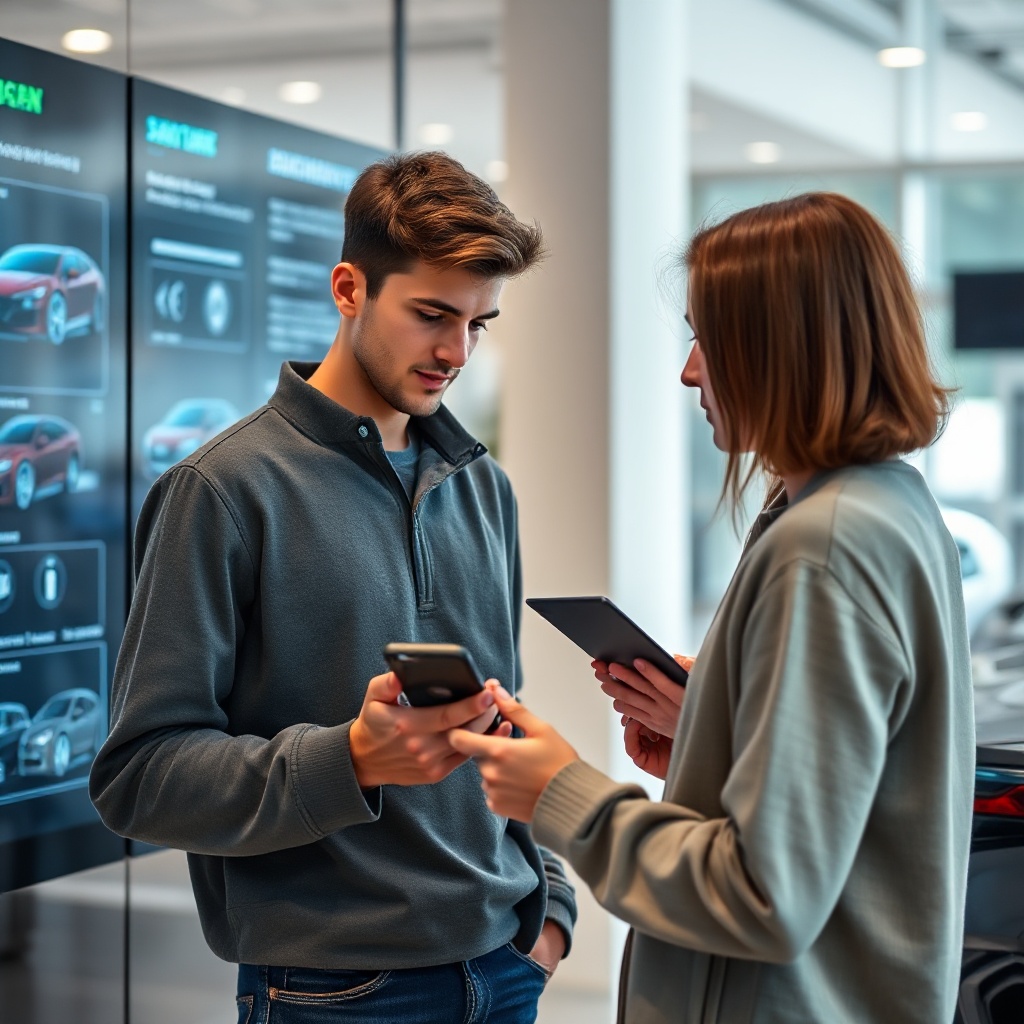
Gen Z has pioneered what industry experts call the "click-and-mortar" approach to car buying. This generation typically begins their journey online through extensive research before transitioning to in-person dealership visits. Despite their digital proficiency, Gen Z places high value on authenticity and the reassurance that comes from experiencing vehicles firsthand.
Their online research includes diverse digital touchpoints:
Interactive vehicle configurators
Virtual test drives
Social media content from influencers and peers
User reviews and ratings
Interestingly, while 38% of Gen Z is willing to purchase vehicles entirely online, the majority still prefer seamless transitions between digital and physical touchpoints. This challenges auto retailers to create truly integrated experiences rather than treating online and in-person as separate channels.
What sets Gen Z apart from even Millennials is their expectation that digital tools should enhance rather than replace human interaction. They want technology to make the process more efficient and transparent while still providing the emotional reassurance of in-person engagement.
AI and Personalization: The New Standard
Personalization powered by artificial intelligence has become an expectation rather than a luxury for Gen Z car shoppers. A striking 79% want AI agents to recommend optimal vehicles based on individual preferences and needs. This aligns with broader consumer trends, as 71% of all consumers now expect personalized experiences when shopping.
The demand for real-time digital pricing tools and transparent offers represents another significant shift. These tools directly address a major pain point in traditional car buying: the negotiation process. Gen Z, having grown up with transparent e-commerce experiences, expects similar clarity when purchasing vehicles.
Interactive support tools like chatbots and live online assistance have become crucial touchpoints that provide instant answers and guidance. These technologies accelerate decision-making by removing friction points and uncertainty from the shopping journey.
For manufacturers and dealers, post-purchase surveys and AI-driven data analysis provide valuable feedback loops to understand Gen Z preferences better. This continuous learning cycle helps brands adapt quickly to changing expectations.
In-Vehicle Technology and Connectivity Priorities
When it comes to vehicle features, Gen Z's priorities reflect their digital-native upbringing. A significant 63% rate interior technology features as more important than exterior appearance—a dramatic shift from previous generations' focus on styling and performance.
This technology focus translates to spending behavior as well. Gen Z buyers spend an average of £4,143 on their first cars—five times more than young adults spent in the mid-1990s (£826). This higher investment directly relates to their desire for connected features and technology integration.
Vehicle connectivity ranks among top priorities for Gen Z buyers, who view features like smartphone integration, Wi-Fi capability, and advanced infotainment as essential rather than optional luxuries. The car is seen as an extension of their digital ecosystem rather than a separate entity.
Social media plays an increasingly important role in shaping these preferences, with platforms like TikTok driving dramatic increases in searches for car accessories and technology enhancements. This represents a fundamental shift in how automotive trends spread and influence purchasing decisions.
Sustainability, Cost, and New Automotive Values
Environmental concerns significantly influence Gen Z's automotive preferences, with 28% expressing desire for their next vehicle to be electric. This motivation stems from both environmental consciousness and practical cost considerations, particularly regarding fuel savings over time.
Financial pragmatism appears throughout Gen Z's car buying journey, with 85% factoring insurance costs into their vehicle selection decisions. This practical approach contradicts assumptions that younger generations lack financial literacy.
Contrary to some industry predictions, car pride and the symbolic value of ownership remain strong motivators for Gen Z. The status and independence associated with vehicle ownership continue to resonate, though the attributes that confer status have shifted toward technology and sustainability rather than traditional luxury markers.
An interesting development is the increasing appeal of Chinese EV brands among younger buyers, with 57% of 17-34 year olds in the UK open to considering these vehicles. This represents a significant challenge to established Western manufacturers and demonstrates Gen Z's prioritization of innovation and affordability over traditional brand heritage.
Transforming the Traditional Dealership Model
Dealerships are experiencing perhaps the most profound transformation in response to Gen Z preferences. The successful models now incorporate interactive digital experiences alongside personal engagement—rather than choosing between high-tech and high-touch approaches.
Virtual showrooms and digital tools are complementing physical dealership experiences, creating spaces where digital research can continue seamlessly in-person. This represents an evolution rather than replacement of traditional dealership functions.
Transparent pricing strategies have become essential to reducing negotiation friction—a particular pain point for Gen Z buyers who have grown accustomed to clear pricing in other retail sectors. Dealerships that embrace this transparency gain trust more quickly with younger shoppers.
Advanced post-sale engagement tools help maintain relationships with Gen Z consumers through personalized service reminders and update notifications. This ongoing connection transforms what was historically a transactional relationship into a continuous partnership.
Auto Manufacturers' Strategic Response
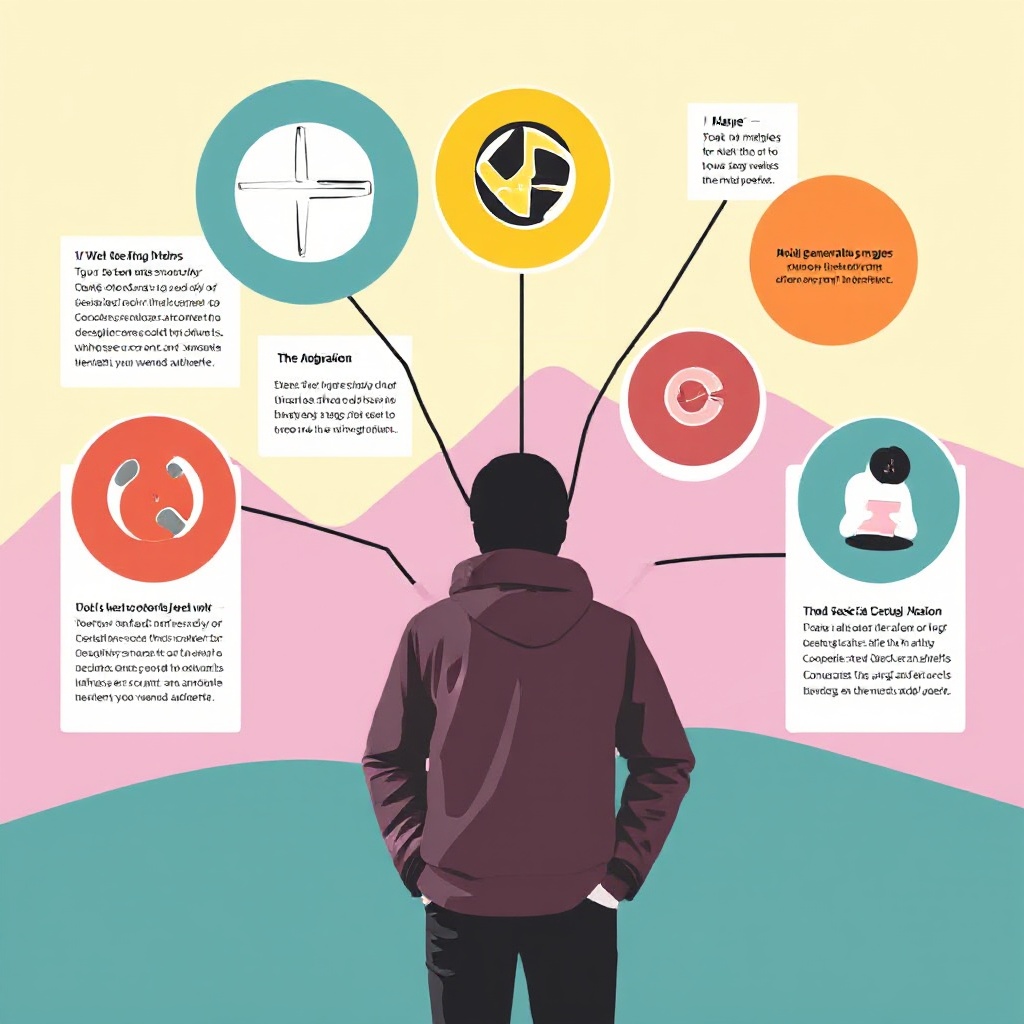
Manufacturers are investing heavily in integrating digital and physical customer journeys to capture Gen Z's attention and build lasting loyalty. Digital transformation initiatives now include virtual showrooms, AI sales support, and comprehensive customer relationship management systems.
Brands focusing on technology innovation and connectivity are gaining competitive advantage with Gen Z. The perception of technological leadership has become as important as traditional automotive values like performance and reliability.
Data analytics has become central to product development and marketing strategy, with manufacturers using insights to continually refine their offerings based on Gen Z preferences. This creates a more responsive, iterative approach to product development.
Some manufacturers have embraced direct-to-consumer selling models that incorporate transparent pricing and simplified purchasing processes. These approaches directly address Gen Z's desire for clarity and efficiency in transactions.
The Future of Automotive Retail
The car buying process is evolving from being transaction-focused to relationship and experience-centered. Success metrics are shifting accordingly, with customer engagement, satisfaction, and brand loyalty becoming as important as pure sales volume.
Manufacturers and retailers are adopting comprehensive technology strategies that span the entire ownership lifecycle, from pre-purchase research to ongoing ownership experiences and eventual repurchase. This holistic approach recognizes that the sale is just one moment in a longer relationship.
Authenticity and transparency have emerged as critical differentiators in attracting and retaining Gen Z customers. Brands that communicate honestly about features, pricing, and environmental impact build stronger connections with this generation.
The future automotive retail landscape will likely feature highly personalized experiences delivered through seamless omnichannel journeys. The winners will be those who successfully blend digital convenience with meaningful human connections—addressing both the practical and emotional aspects of car buying.
Sources:
Motor Finance Online - How Gen Z is shaping the future of car buying: the rise of the omni-channel experience
Urban Science - Future Automotive Sales: Adapting to Gen Z Car Buying Trends
AM Online - Gen Z buyers spending five times more on their first car
Slip N Grip - Generational Car Buying Habits
MIT Energy Initiative - Insights into Future Mobility
